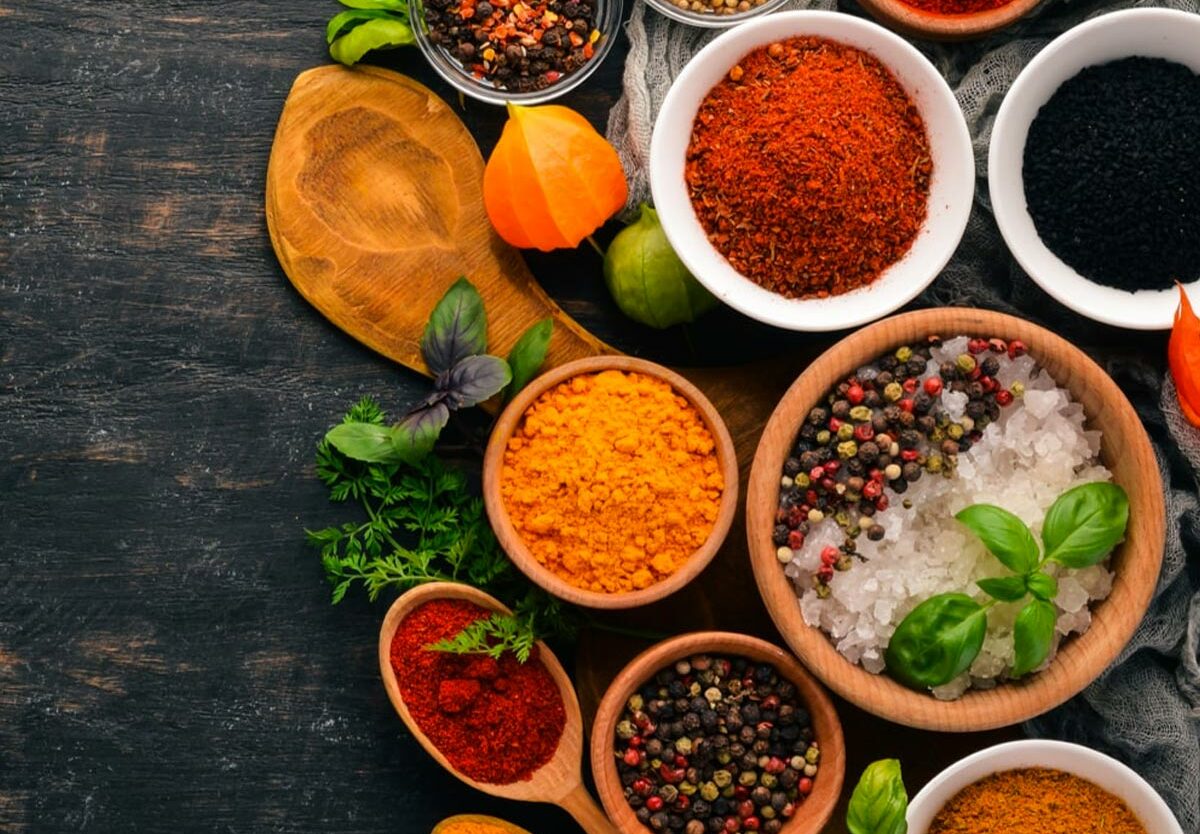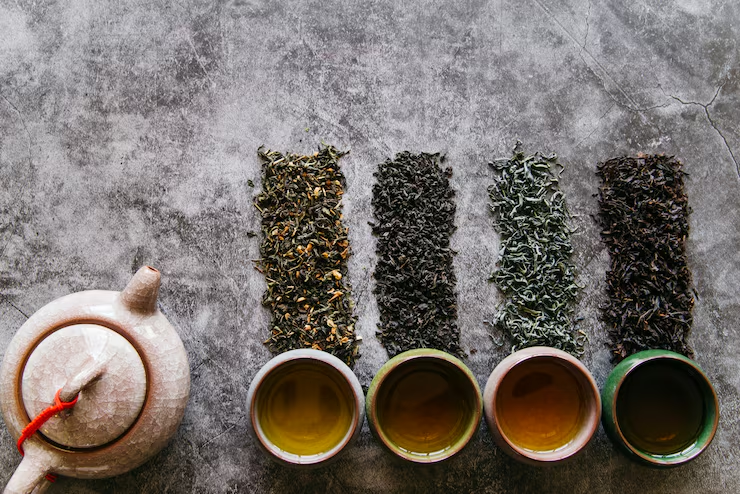Discover the Benefits and Uses of Spicy Herbs in Your Culinary Adventures

Introduction to Spicy Herbs
In the world of cooking, flavor is king—and nothing enhances a dish quite like the right herbs. Spicy herbs, in particular, are the unsung heroes of global cuisines, infusing meals with heat, aroma, and complexity. From chili peppers to oregano, basil to thyme, spicy herbs have a long-standing place in kitchens around the world. They not only elevate the taste of food but also bring a host of health benefits that make them indispensable in both professional and home kitchens.
If you’re curious to explore the diverse world of spicy herbs, their uses, and benefits, the detailed guide at https://pepperandsalt.kz/pryanue-travi/ offers a wealth of information. It’s a great starting point for anyone looking to experiment with bold herbal flavors in their cooking.
What Are Spicy Herbs?
Spicy herbs are botanicals known for their pungent, hot, or piquant flavor profiles. These differ slightly from spices, which often come from seeds, bark, or roots. Spicy herbs usually consist of fresh or dried leaves and are packed with essential oils that deliver strong flavors. Some examples include:
- Basil
- Thyme
- Oregano
- Rosemary
- Cilantro
- Tarragon
- Mint (peppermint and spearmint)
Each of these herbs brings a unique character to the table, capable of transforming ordinary dishes into extraordinary experiences.
Culinary Uses of Spicy Herbs
Enhancing Savory Dishes
Spicy herbs are ideal for adding depth and flair to savory meals. Fresh basil and oregano, for example, are key players in Italian sauces and pizzas. Thyme and rosemary are often used in roasting meats and vegetables, infusing them with a woody, peppery aroma.
- Tip: Add herbs at different stages of cooking for layered flavor—early for subtle infusion, and late for a bold burst.
Boosting Marinades and Rubs
Marinades and rubs made with spicy herbs can enhance meat tenderness and taste. Combine herbs like thyme, sage, and crushed red pepper with olive oil, lemon juice, and garlic for a dynamic marinade for grilled chicken or lamb.
Brightening Soups and Stews
Hearty soups and stews benefit greatly from spicy herbs. A handful of chopped cilantro or parsley added right before serving adds a fresh lift. Bay leaves, when simmered in broths, release a slow-building spiciness.
Elevating Salads and Dressings
Herbs like arugula, mustard greens, and watercress have a natural peppery bite and are perfect in fresh salads. Adding chopped herbs to dressings can dramatically improve flavor complexity without extra calories or fat.
Health Benefits of Spicy Herbs
Incorporating spicy herbs into your meals doesn’t just improve flavor—it also supports wellness. Many herbs are rich in antioxidants, anti-inflammatory compounds, and antimicrobial properties.
Anti-Inflammatory Properties
Many spicy herbs such as turmeric, oregano, and rosemary contain compounds like curcumin and rosmarinic acid that help reduce inflammation. Chronic inflammation is a contributor to many diseases, so these herbs can play a protective role.
Digestive Aid
Spicy herbs like mint, fennel, and basil aid digestion by stimulating digestive enzymes and soothing gastrointestinal discomfort. A cup of herbal tea after a meal is a traditional remedy in many cultures.
Immune System Boost
Herbs like thyme and oregano are packed with vitamins C and A, along with antibacterial properties that support immune health. Thyme, in particular, has thymol—a potent antimicrobial compound.
Antioxidant Power
Spicy herbs are dense in antioxidants, which help combat free radicals and oxidative stress. This contributes to slowing the aging process and reducing the risk of chronic illnesses such as heart disease and cancer.
Growing and Storing Spicy Herbs
You don’t need a large garden to grow spicy herbs. A sunny windowsill or balcony can be enough for small pots of basil, thyme, or cilantro.
Growing Tips
- Use well-draining soil and pots with drainage holes.
- Water regularly but avoid waterlogging.
- Harvest leaves regularly to encourage new growth.
Storing Herbs
- Fresh: Store in damp paper towels in the refrigerator for short-term use.
- Drying: Hang bundles upside down in a dry, dark area. Once dry, crumble and store in airtight containers.
- Freezing: Chop and freeze in ice cube trays with olive oil for easy use in cooking.
Global Cuisines and Spicy Herbs
Spicy herbs are staples in a variety of global cuisines, contributing signature flavors to iconic dishes.
Italian Cuisine
Basil, oregano, and parsley dominate Italian cooking. Think of pesto, pasta sauces, and pizza—all brought to life with herbaceous spice.
Middle Eastern Cuisine
Mint, coriander, and dill are central in Middle Eastern dishes like tabbouleh, falafel, and spiced rice dishes.
Asian Cuisine
Thai and Vietnamese dishes use fresh herbs such as Thai basil, lemongrass, and cilantro for brightness and heat.
Latin American Cuisine
Cilantro is a cornerstone in salsas, guacamole, and rice dishes. It adds freshness and a slight peppery note that balances rich flavors.
Cooking Tips for Spicy Herbs
- Use sparingly: Strong herbs can overpower a dish. Start small and adjust to taste.
- Pair wisely: Combine herbs with complementary spices (e.g., thyme and paprika) for enhanced flavor.
- Don’t overcook: Add delicate herbs like cilantro and basil at the end to preserve their flavor and nutrients.
How to Incorporate More Spicy Herbs into Daily Meals
If you’re new to cooking with spicy herbs, start simple. Add chopped herbs to scrambled eggs, use herb-infused oils for sautéing, or sprinkle them over roasted vegetables.
- Try a herb-forward chimichurri sauce with grilled meat.
- Add fresh mint or basil to fruit salads for contrast.
- Mix chopped thyme and rosemary into mashed potatoes.
Where to Learn More
For a deeper understanding of spicy herbs, including detailed descriptions and usage ideas, visit https://pepperandsalt.kz/pryanue-travi/. This resource offers a wide range of tips on selecting, using, and pairing spicy herbs in your culinary journey.
Conclusion
Spicy herbs are more than just garnishes—they’re essential tools that bring dishes to life, enrich our health, and connect us with culinary traditions from around the world. Whether you’re cooking a weekday dinner or crafting a gourmet feast, incorporating spicy herbs will enhance your meals in flavor and nutrition alike. Start experimenting today, and you’ll quickly see how these small green leaves can lead to big culinary rewards.






